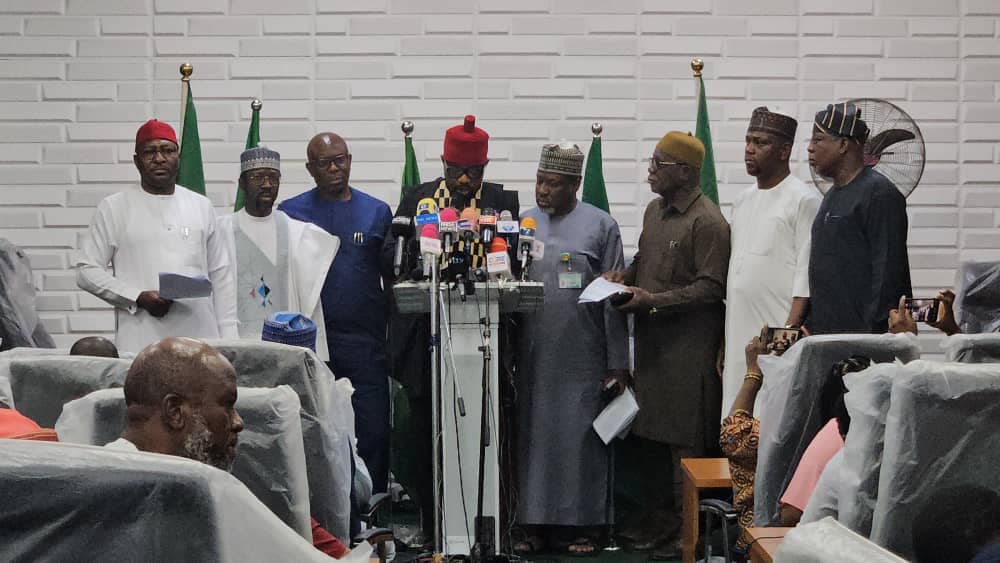
Stakeholders, comprising business leaders and industry experts, called on the government on Monday to introduce fiscal policies that stabilise the economy and create an enabling environment for private sector-led economic transformation.
They also said that there is a need for the federal government to work with the private sector to drive economic transformation, create jobs, and contribute to Nigeria’s economic growth and prosperity.
The Founder and Executive Director of OrderPaper Nigeria, Mr. Oke Epia, speaking at the Private Sector Dialogue on Fiscal Responsibility and Debt Management, with the theme: ‘Nigeria’s Fiscal Policy and The Private Sector,’ expressed delight at the engagement.
The event brought together non-state actors, civil society organisations, and government representatives to discuss challenges and opportunities in public finance reforms and service delivery.
Epia explained the importance of collaboration among stakeholders, adding that sustained efforts have been made since 2016 to promote fiscal transparency and accountability through the Growth Initiatives for Fiscal Transparency project.
In his remarks, the Chairman of the Fiscal Responsibility Commission, Victor Muruako, urged stakeholders to harness their collective influence to drive progress in public finance management and achieve better fiscal responsibility outcomes in Nigeria.
He said: “The private sector is not a stranger or a bystander in public finance reforms and operations. The imperatives of government revenue, public expenditure, public debt, transparency, and accountability in public finance management are not exclusive to public sector entities.
“They extend to the private sector as well, which are integral contributors to the economic growth and development of our nation. I, therefore, call on the private sector to actively engage with the public sector to uphold accountability and prudent management of public resources.
“Our collective responsibility is to ensure the best outcomes for all citizens of this nation. Furthermore, it is important to note that Section 51 of the Fiscal Responsibility Act (FRA) empowers every citizen, including private sector individuals, to enforce the provisions of the Act.”
The Executive Secretary of the Nigeria Extractive Industries Transparency Initiative (NEITI), Orji Ogbonnaya Orji, urged private sector engagement in public finance management to promote sustainable development and benefit all Nigerians.
He also stressed the importance of transparency and accountability in fiscal policy management.
Orji said: “Every day the media is awash with stories and news of how much Nigeria is spending on debt repayment. We are not saying that debt is not good, but the process should be transparent and tracked for the effective deployment of the resources borrowed.
“In fact, in NEITI reports, there have been queries about details of certain borrowings that are still not in the open – Project Eagle, Project Bisson, the AfreximBank, etc. Beyond that, lack of transparency and predictability in your fiscal policy makes it difficult for the private sector to plan.
“The private sector is scared to borrow. So resources you collateralized at 15% last year in one year go up to 30%. Today’s dialogue therefore represents a significant step towards fostering a collaborative approach to fiscal policy reform in Nigeria.”
The Chairman of the House Committee on Public Accounts, Hon. Bamidele Salami, said that there is a need for government and private sector collaboration to boost the economy.
Salami said: “If we are going to get our public finance system right, and if we are going to be a country that actually respects its own laws and protects it, there can hardly be a very wide line between the public sector system, set up to ensure sustainability, and the management of the operations of the private sector, because they are intertwined.
“And, you know, when we talk about corruption and what have you, in most instances, the funds that go out of public funds actually end up in private accounts. And, you know, there are so many methods that people use to launder funds, and use a whole lot of private sector players to get these things done.
“So, there is obviously a very good lack of understanding of why we need to work together. We need to work together because we have a country to build, because we have a common patrimony. And, regardless of where you are, rules do shift at times.”












